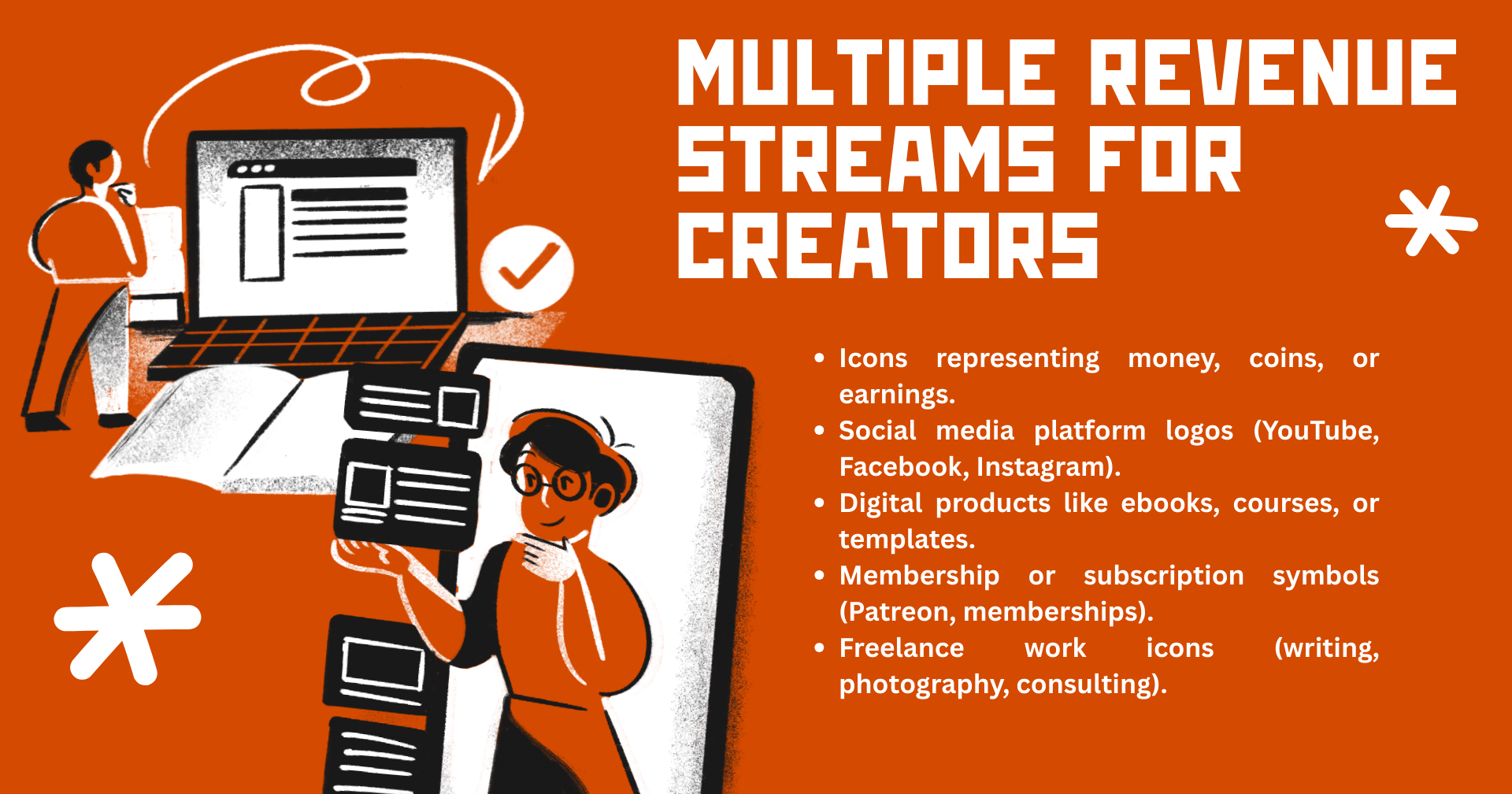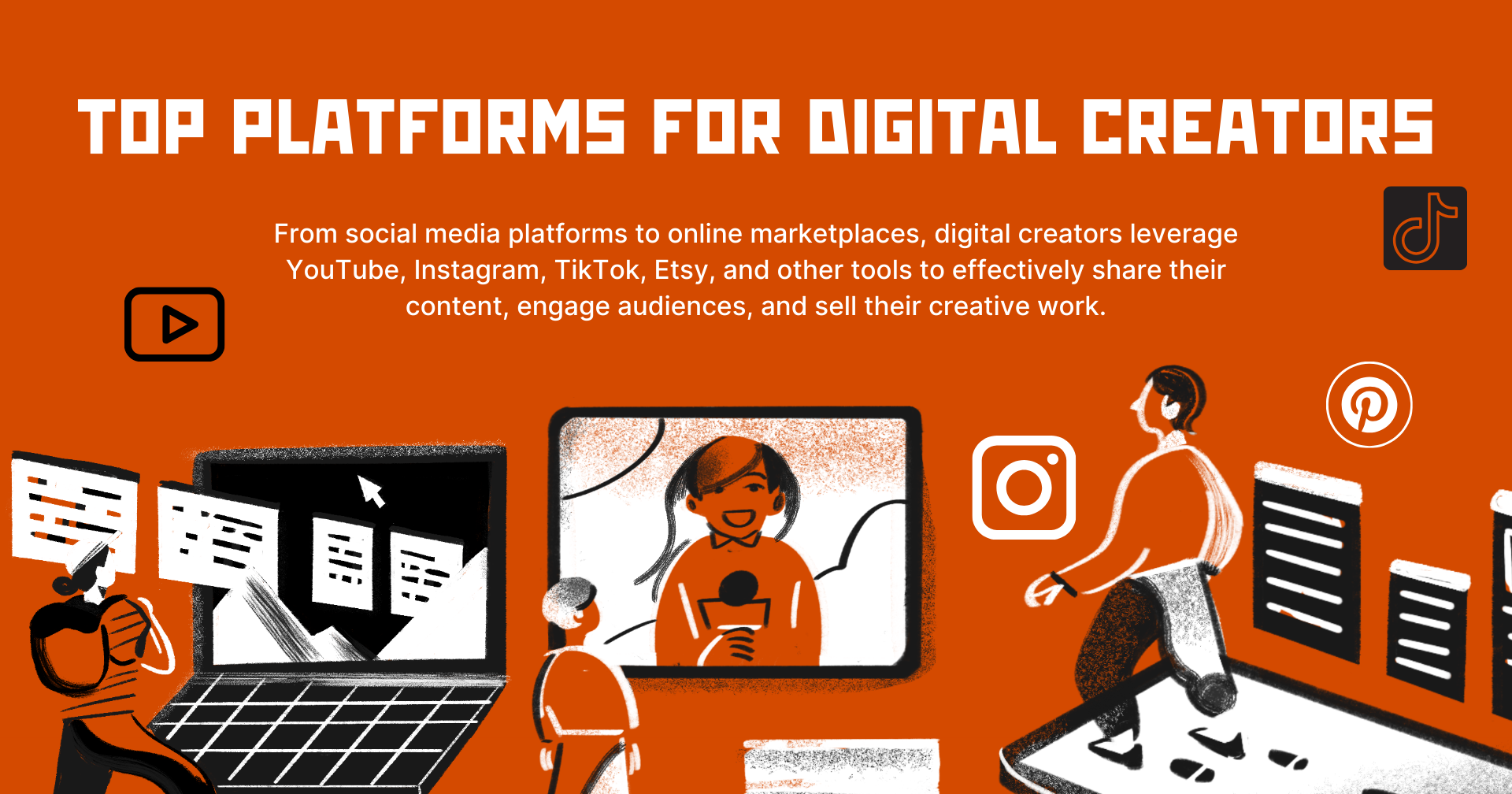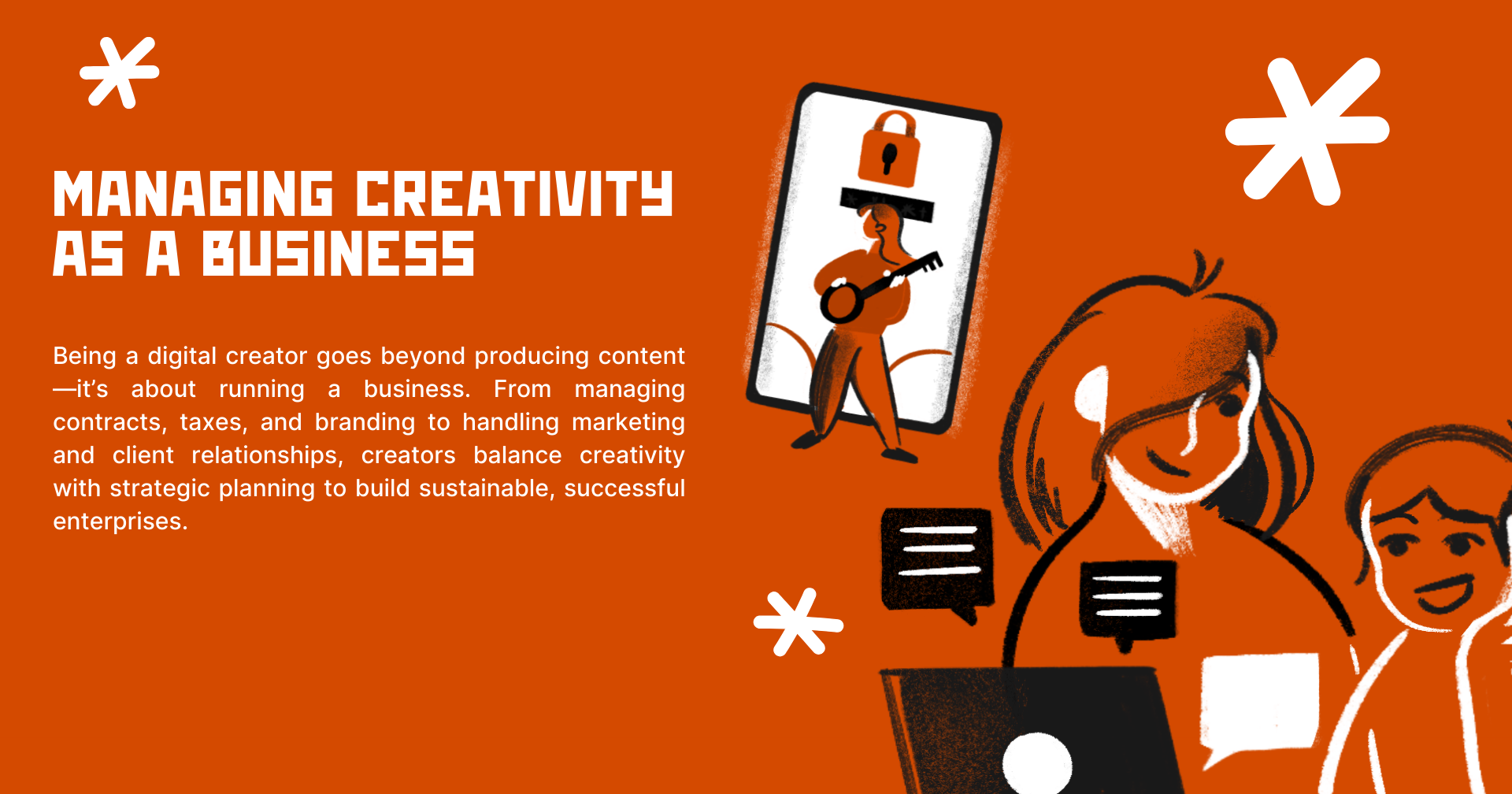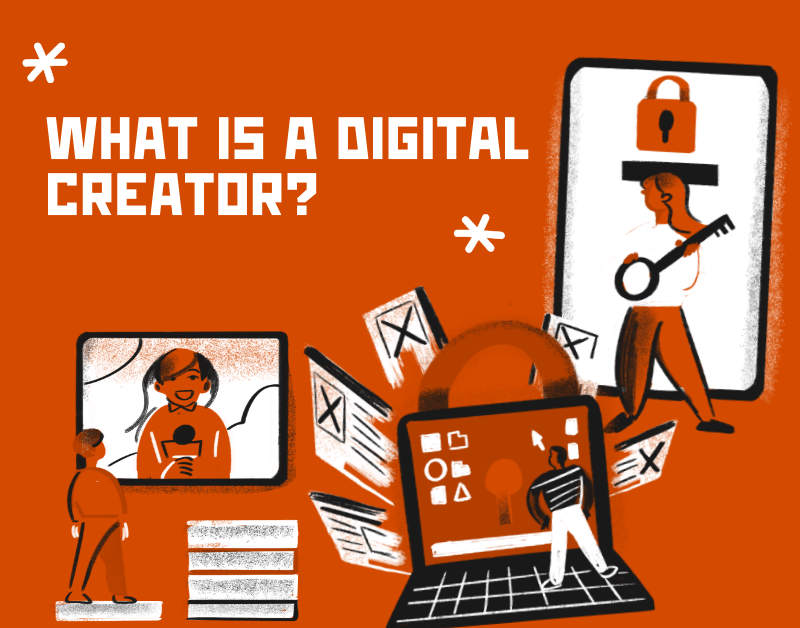Introduction
The digital landscape has transformed the way we communicate, share, entertain, educate, and do business. In the center of this transformation stands a new breed of professionals known as digital creators. From YouTube videos and Instagram reels to podcasts, blogs, and online courses, digital creators are the people behind the content that populates the internet and shapes modern culture.
With the growth of digital platforms, the term “what is digital creator” is becoming more common. But what exactly does it mean to be a digital creator? How is it different from an influencer or a content marketer? What is a digital creator’s role in shaping online trends and driving audience engagement? What do digital creators actually do, and why are they so important in today’s digital economy?
We’ll also touch on related concepts such as digital marketing occupation, digital signature, amazon digital products, digital photography, digital marketing consultant roles, and more—helping you fully understand what is digital creator and providing clarity on exactly what is a digital creator in the evolving online world.
Defining Digital Creator
The content can include written articles, videos, images, podcasts, animations, and even digital courses. Unlike traditional media creators who work in film, print, or television, digital creators primarily operate online, making the question of what is a digital creator more relevant than ever.
A digital creator is someone who produces original content for online platforms, shaping how people consume information, entertainment, and education in today’s digital-first world. They craft videos, blogs, podcasts, graphics, and social posts that reach audiences across a variety of platforms, making them influential voices in multiple industries. To fully grasp their impact, it’s important to ask what is a digital creator and how they shape our digital experiences.
These creators rely on platforms like YouTube, Instagram, TikTok, Medium, LinkedIn, Facebook, and personal blogs to share their work. Each platform offers unique opportunities to connect with audiences, whether it’s through short-form videos, long articles, or community-driven posts. When exploring what is a digital creator, it becomes clear that their ability to adapt to different platforms is part of what makes them so impactful.
The purpose of their content can vary widely. Some digital creators focus on informing their audience with tutorials and guides, while others entertain through storytelling, music, or humor. Many aim to inspire with motivational content or educate with courses and expert insights. Looking at what is a digital creator in this context shows the diverse ways they engage and influence audiences.
For businesses and brands, understanding what is a digital creator provides valuable insights into how these professionals influence markets. Their work can build awareness, drive sales, and create loyal communities that extend beyond traditional advertising methods. In many ways, digital creators are becoming modern-day marketers who bridge the gap between brands and audiences.
Ultimately, knowing what is a digital creator is essential in today’s fast-moving digital economy. They are not just content makers but trendsetters who shape conversations, influence consumer behavior, and define the culture of online communities. Their role continues to expand as digital platforms evolve, making them indispensable in the modern internet landscape.
Types of Digital Creators
There are many different types of digital creators, and each one plays a specific role in the digital ecosystem. Some specialize in visuals, while others are known for their writing, audio content, or interactive media.
- Video creators who produce YouTube or TikTok videos
- Podcasters who record and publish audio episodes on platforms like Spotify
- Bloggers who write articles or guides on niche topics
- Streamers who broadcast live content on Twitch or YouTube Live
- Graphic designers and illustrators creating visual art for digital campaigns
- Photographers sharing digital photography on Instagram or personal websites
- Course creators who design and sell digital education materials
How Digital Creators Earn Income
- Sponsored content from brands\
- Advertising revenue from platforms like YouTube and Facebook
- Affiliate marketing commissions
- Selling digital products such as ebooks, templates, or online courses
- Subscriptions and membership platforms like Patreon
- Freelance services in writing, photography, or consulting
- Digital ads placed on blogs or personal websites
- Offering consultations as a digital marketing consultant
Some creators build full-scale businesses using multiple revenue streams. For example, a blogger may sell a digital marketing certificate course, host ads, and provide consulting services.

Role of Digital Technology
The rise of digital creators is directly tied to the advancement of digital technology. Tools such as smartphones, editing software, and social media platforms have lowered the entry barrier, allowing anyone with internet access to explore what is a digital creator and become one themselves.
Digital surface models and 3D technology are even enabling creators in architecture, gaming, and product design to build interactive visuals. Digital photography tools help creators shoot high-quality images for social media or print. Whether through advanced video editing suites or mobile apps, digital technology powers the creativity of modern creators—making it easier than ever to understand what is a digital creator and how they transform ideas into engaging digital experiences.
Role of a Digital Content Creator
ChatGPT said:
A digital content creator’s role goes far beyond simply posting videos or writing articles. They are multi-skilled professionals who craft written, visual, and video content designed to educate, entertain, or inspire specific audiences. Whether managing a YouTube channel, designing digital ads, or publishing blog posts, their work must align with clear goals—like boosting brand visibility or driving user engagement.
Understanding what is a digital creator also means recognizing their ability to adapt to trends, use analytics to guide strategy, and produce content that resonates with target audiences. Today’s digital creators must also be savvy marketers, knowing how to optimize their content for search engines, social platforms, and niche audiences.
They often manage everything from SEO to social media, acting as influencers, community builders, and affiliate marketers all at once. In fact, successful creators grow communities by staying in touch with their fans, answering comments, and creating a sense of trust. Monetization can come in many forms—sponsored posts, affiliate links, product placements, or even digital product sales. Creators who truly understand what is a digital creator and how to blend storytelling with strategic promotion can turn passion into profession while delivering real value to their audience.
Skills Digital Creator Needs
Being a successful digital creator isn’t just about creativity—it also requires technical knowledge, discipline, and marketing skills. While the specific skills may vary by content type, there are some core competencies that apply to most creators.
Essential Skills
- Basic understanding of SEO and platform algorithms
- Audience engagement and community building
- Analytics and performance tracking
- Copywriting and digital storytelling
- Branding and visual identity design
Some digital creators enhance their professional credibility by earning a digital marketing certificate or taking online courses like those available from Google Digital Garage.
Digital Creator vs Influencer
The terms digital creator and influencer are often used interchangeably, but they are not the same. An influencer is primarily focused on influencing purchasing decisions through lifestyle content and brand partnerships. A digital creator, on the other hand, is focused on creating content—regardless of whether it leads to sponsorships.
While many influencers are digital creators, not all digital creators aim to become influencers. For example, a YouTube tech reviewer might be a digital creator who earns revenue from ads and affiliate links without promoting products directly on behalf of brands.
Platforms for Digital Creators
- YouTube
- TikTok
- Pinterest
Some creators sell products directly through Amazon Digital platforms or use marketplaces like Etsy to offer templates, digital art, and tools.

Modern Digital Creators
Digital creators are reshaping industries. They influence consumer behavior, drive cultural trends, and give rise to new economic models. Brands now rely heavily on digital creators for marketing, audience engagement, and product promotion. Understanding what is a digital creator is essential for businesses looking to leverage this powerful force in the digital economy. This knowledge helps companies craft more effective campaigns and connect authentically with their target audiences.
In fact, hiring a digital marketing consultant who understands creator-driven campaigns is a common strategy among companies aiming to grow their online presence. The digital marketing occupation itself has evolved to include collaboration with digital creators, further emphasizing the importance of knowing what is a digital creator and how they impact modern marketing strategies.
How to Become a Digital Creator
Steps to becoming a digital creator:
- Choose your content type (writing, video, podcasting, etc.)
- Identify your niche and target audience
- Select the right platforms for content distribution
- Invest in the necessary tools (camera, microphone, software)
- Create a content calendar and publishing schedule
- Optimize content for search engines and platforms
- Engage with your audience consistently
- Track analytics and adjust your strategy accordingly
- Diversify your income streams through affiliate links, digital products, or freelance services
Some digital creators may also choose to register a digital signature for legal contracts or set up an e-commerce store for selling downloads.
Challenges Digital Creator Face
While the digital creator path offers freedom and creative control, it’s not without challenges. Understanding these obstacles can help new creators prepare better.
- Content burnout and pressure to publish frequently
- Algorithm changes affecting reach and engagement
- Platform dependency and lack of control over policies
- Inconsistent income, especially for new creators
- Time management across creation, editing, and marketing
- Maintaining authenticity while working with brands
Successful digital creators overcome these by diversifying platforms and income, setting realistic schedules, and building strong personal brands
Business Side of Being a Digital Creator
Being a digital creator is more than just producing content—it’s also about managing a business. Many creators work as freelancers, operate solo brands, or run digital agencies. Understanding what is a digital creator means recognizing these entrepreneurial aspects alongside creative skills. This broader view helps creators prepare for the challenges of running a successful digital enterprise.
The business side of being a digital creator is just as important as the creative side. Beyond producing content, creators are also responsible for managing the operational aspects of their careers. They often deal with contracts, taxes, branding, customer service, and intellectual property rights, making their role similar to that of a small business owner. This side of the work requires organization, planning, and an understanding of how to protect and grow their brand.
Contracts are a key part of a digital creator’s journey. Whether they are partnering with a brand, signing sponsorship deals, or collaborating with other creators, clear agreements protect both sides and outline expectations. Many digital creators now rely on digital signature platforms to streamline these processes, ensuring that contracts are legally binding while saving time and effort.
Managing finances is another critical responsibility. Digital creators must track income, pay taxes, and sometimes hire accountants or financial advisors to stay compliant. Proper financial management allows them to reinvest in their content, upgrade their tools, and maintain a sustainable career. Understanding the financial side of what is a digital creator highlights how professionalism is crucial in this evolving industry.
Marketing and branding also play a huge role. Many creators branch into SEO-focused blogs, personal websites, or even online stores to expand their digital footprint. Some collaborate with SEO firms or hire digital marketing specialists to help them rank higher on search engines and attract more audiences. This shows that the answer to what is a digital creator is not limited to content production—it extends into the full spectrum of digital business growth.
Finally, customer service and community management cannot be overlooked. A successful digital creator must interact with their audience, respond to feedback, and sometimes handle customer queries directly if they sell products or courses. This interaction builds trust and loyalty, which is essential for long-term success. In this way, knowing what is a digital creator means recognizing them as both artists and entrepreneurs who balance creativity with business acumen.

Legal and Regulatory Considerations
As digital creation becomes more commercial and creators start monetizing their content, understanding what is a digital creator also means grasping the legal side, which is not just important—it’s essential. Operating as a digital creator involves many of the same responsibilities and risks as running a small business. Failing to comply with legal regulations can lead to content removal, demonetization, or even legal action.
In many countries, legislation such as the Digital Act, Consumer Protection Laws, and Data Protection Regulations (like GDPR in Europe or CCPA in California) outlines how digital creators must handle user data. If you’re collecting emails for newsletters, storing customer information, or using cookies for remarketing, these regulations may apply to you—regardless of where your business is based. Understanding what is a digital creator also means knowing these compliance requirements to protect your work and audience.
Creators who display ads, sell products, or promote affiliate links also need to follow disclosure guidelines. The Federal Trade Commission (FTC) in the U.S., for example, requires influencers and digital creators to clearly label sponsored content using disclosures such as #ad or #sponsored. Most social platforms, including Instagram and YouTube, have built-in features to assist with proper labeling.
For freelance digital marketing consultants, understanding local licensing, business registration, and client agreements is especially important. Not only does it protect you legally, but it also builds trust with clients and brands. Staying informed about what is a digital creator includes knowing the legal responsibilities that come with the role.
By staying compliant with the latest legal guidelines, digital creators can focus on growing their brand without fear of penalties or disruptions. As the digital landscape continues to evolve, it’s wise to stay informed about changes in law and policy—especially if you’re working internationally.
Key Tools
- Canva or Adobe Photoshop for design
- Final Cut Pro, Adobe Premiere Pro, or CapCut for video editing
- Anchor or Audacity for podcast editing
- WordPress or Medium for blogging
- Google Analytics and Google Search Console for tracking performance
- Buffer, Later, or Hootsuite for scheduling social media posts
- Grammarly for editing written content
- Digital signature platforms for signing contracts online
Opportunities in 2025
The future is bright for digital creators. As businesses continue their digital transformation, there’s a rising demand for engaging, authentic, and value-driven content across industries. Whether you’re a content strategist, digital photographer, influencer, YouTuber, or freelance digital marketing consultant, understanding what is a digital creator unlocks the potential to thrive in this dynamic environment. Thanks to emerging platforms, remote work culture, and AI-driven tools, creators now have more power and freedom than ever before.
With advancements in AI, augmented and virtual reality (AR/VR), and blockchain, the way people consume content is changing rapidly. Digital creators who stay ahead of trends—like creating immersive video experiences, launching NFT art collections, or integrating AI-based tools into content workflows—can tap into new income streams and build future-proof careers. Recognizing what is a digital creator and adapting to these innovations is essential for success in 2025 and beyond.
In 2025 and beyond, the creator economy is expected to surpass previous years in size, diversity, and profitability. Whether your goal is to build a loyal following, start a digital marketing firm, or simply monetize your passion, understanding what is a digital creator will position you to seize opportunities and secure your place in this ever-evolving digital world.
Final Thoughts
The digital creator has become a central figure in today’s internet-driven economy, shaping the way we learn, entertain ourselves, and even shop online. From producing entertaining videos to publishing insightful blogs, podcasts, and courses, they influence how we interact with digital content every single day. Understanding what is a digital creator allows us to see the depth of their role—not just as content makers but as drivers of cultural trends and business growth.
A closer look at what is a digital creator also highlights their versatility. They are not only artists but also entrepreneurs, marketers, and brand strategists. As technology evolves, so does the definition of what is a digital creator, expanding into areas like AI tools, virtual reality experiences, and new forms of digital storytelling. Businesses, too, are recognizing that answering the question of what is a digital creator is key to leveraging their influence for stronger customer engagement and brand presence.
In the end, understanding what is a digital creator is more than just defining a term—it’s about appreciating their growing importance in shaping modern commerce, communication, and culture. Whether you want to become one yourself or collaborate with them for your brand, their role will only continue to expand in our digital-first world.


